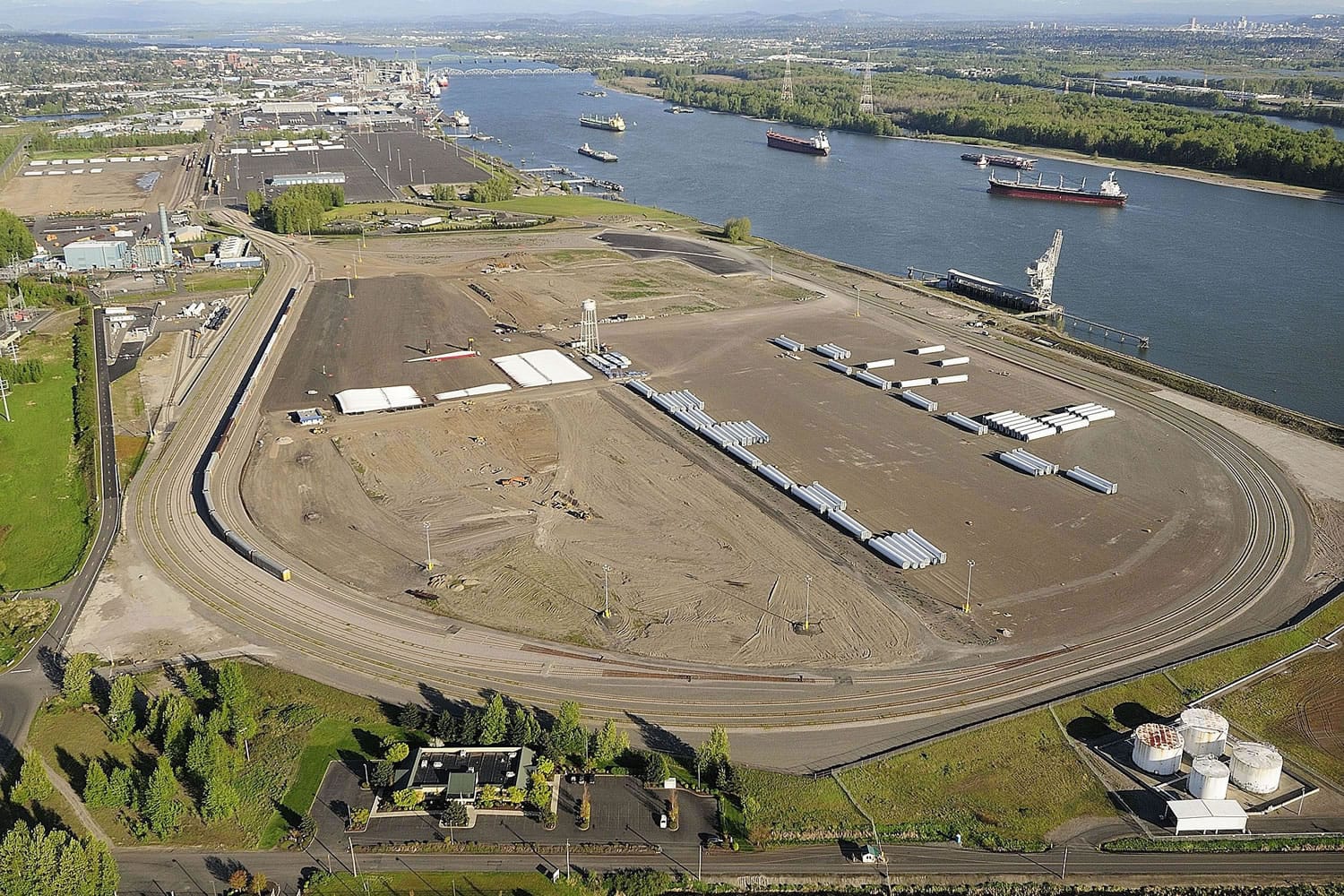The Port of Vancouver wasn’t first on the list when BHP Billiton, the world’s largest mining company, went shopping for a place to ship fertilizer, a senior executive with the company said Wednesday.
But the port’s rail, ready-to-go land and its leaders’ willingness to accommodate BHP Billiton’s plans led the company to choose it over more than 30 other options in Canada and the U.S., said Chris Ryder, vice president of external affairs for the Melbourne, Australia-based company, who spoke during a luncheon held by the Rotary Club of Vancouver at the Red Lion Hotel Vancouver at the Quay.
Ryder said the company is working to obtain permits to break ground in 2012 on an export facility at the port’s Terminal 5 to ship potash — a fertilizer ingredient used to boost crop yields — primarily to Asia.
Asked how many jobs the operation would create, Ryder said “about 40,” adding that “it’s not a manufacturing operation.” Ryder said the company’s capital investment in the project would amount to several hundred millions of dollars.
He said BHP Billiton’s core values include becoming a part of and contributing to the communities in which it does business. The company’s core commitment is to do “zero harm” to people, the environment and the communities in which it operates, Ryder said.
The company’s charitable efforts are focused in the areas of childhood education and health care, Ryder said, and roughly 1 percent of the company’s pretax global profits goes to community programs.
Ryder did not specify a number but said a portion of the company’s charitable giving will come to Vancouver.
“We aim to earn the trust of all of our stakeholders,” he said.
Ryder used a slideshow to share his company’s history and plans with more than 75 attendees at Wednesday’s event. As he spoke, he made it clear that the Port of Vancouver will play a role in BHP Billiton’s overall global strategy to help feed the world’s growing population.
Ryder said the company, whose holdings include 9,400 square miles of land in Saskatchewan, Canada, and oil and shale gas rights, views potash as a key to its long-term growth plans.
That’s because the world’s population and the demand for food are growing while the land available to grow crops is in decline, Ryder said. As a result, there’s a need to make better use of existing farmland, which potash will help serve in its role as a booster of crop yields.
Ryder said BHP Billiton is the third-largest company in the world by market capitalization — the total value of all of the company’s stock. The company’s market cap is about $240 billion. By comparison, the market cap of Microsoft Corp., the software giant, is $225 billion.
BHP Billiton will use its muscle to build a world-class export operation at the Port of Vancouver, Ryder said.
The export facility is proposed to be built at the port’s Terminal 5. BHP Billiton would transport potash by rail to the port, where it would then be loaded onto ships bound primarily for Asia. The company would haul the potash from a mine it’s developing in Canada’s Saskatchewan Basin.
Potash is a nonflammable salt considered to be nontoxic to aquatic organisms by the U.S. Environmental Protection Agency, according to the port. At Terminal 5, the potash would be stored in fully enclosed facilities.
Landing BHP Billiton is a big deal for the Port of Vancouver, said the port’s executive director, Larry Paulson, a Rotary member who attended Wednesday’s event.
The port currently handles about 5 million metric tons of freight annually. With BHP Billiton coming and United Grain Corp. expanding, Paulson said, the port will, by the early 2020s, handle 15 million metric tons of freight annually. “We’ll triple our capacity,” he said.
The port hopes to sign BHP Billiton to a long-term lease by mid-2012, Theresa Wagner, the port’s communications chief, said in an email to The Columbian.
BHP Billiton wants its export operation at the port to go into operation by 2015.
Ryder said BHP Billiton used a two-year, “rigorous process” in eventually choosing the Port of Vancouver over other ports. “The first place we looked was in Canada,” Ryder said, because the country is home to major BHP Billiton holdings and operations.
But the Port of Prince Rupert in British Columbia, for example, wasn’t ready to meet BHP Billiton’s production needs, Ryder said. The Port of Vancouver was.
Paulson said the deepening of the Columbia River channel to accommodate ships with larger loads, as well as the port’s land and rail, “put us in a good position to move forward.”
Aaron Corvin: 360-735-4518 or aaron.corvin@columbian.com




